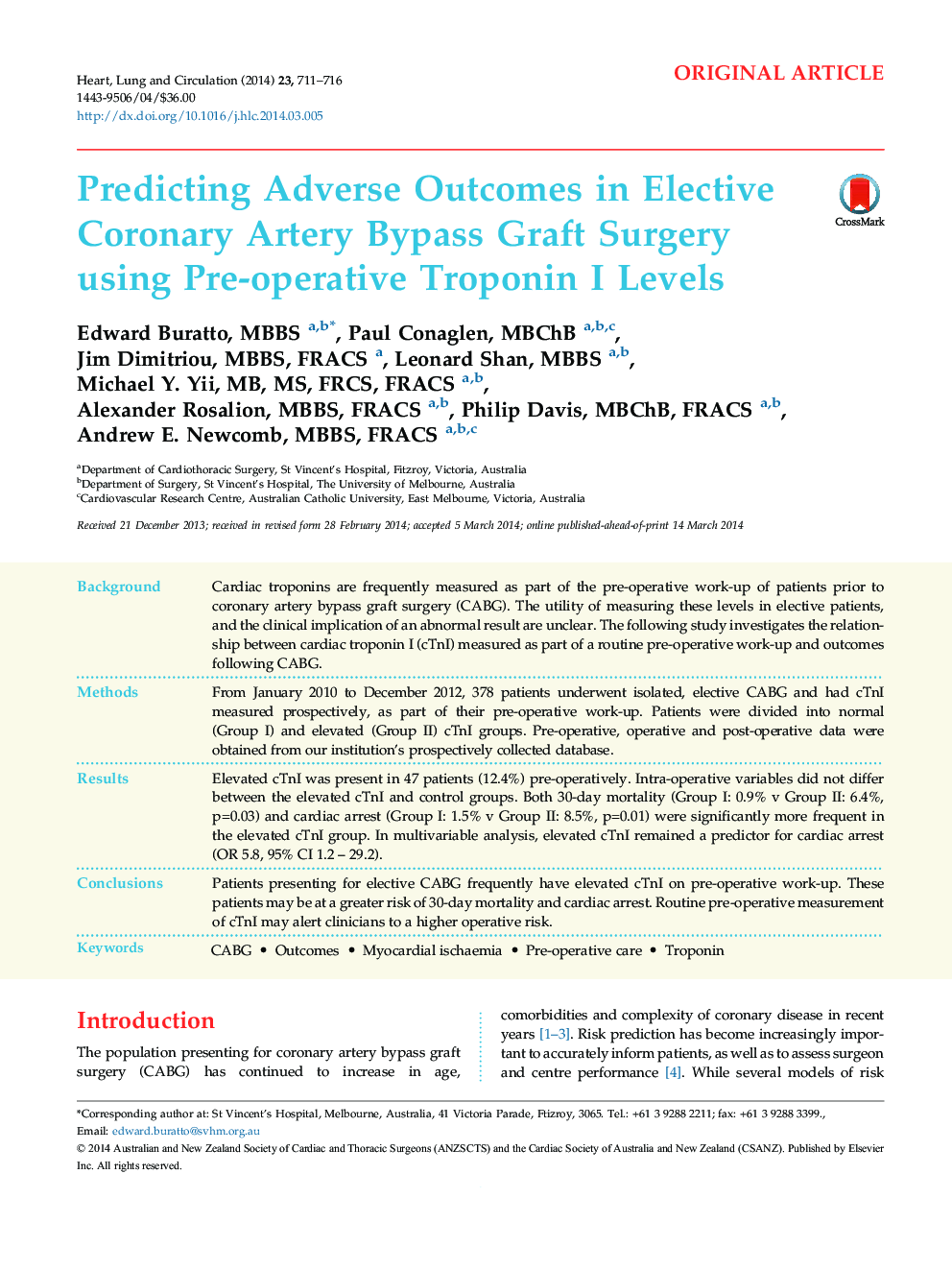| Article ID | Journal | Published Year | Pages | File Type |
|---|---|---|---|---|
| 2917741 | Heart, Lung and Circulation | 2014 | 6 Pages |
BackgroundCardiac troponins are frequently measured as part of the pre-operative work-up of patients prior to coronary artery bypass graft surgery (CABG). The utility of measuring these levels in elective patients, and the clinical implication of an abnormal result are unclear. The following study investigates the relationship between cardiac troponin I (cTnI) measured as part of a routine pre-operative work-up and outcomes following CABG.MethodsFrom January 2010 to December 2012, 378 patients underwent isolated, elective CABG and had cTnI measured prospectively, as part of their pre-operative work-up. Patients were divided into normal (Group I) and elevated (Group II) cTnI groups. Pre-operative, operative and post-operative data were obtained from our institution's prospectively collected database.ResultsElevated cTnI was present in 47 patients (12.4%) pre-operatively. Intra-operative variables did not differ between the elevated cTnI and control groups. Both 30-day mortality (Group I: 0.9% v Group II: 6.4%, p=0.03) and cardiac arrest (Group I: 1.5% v Group II: 8.5%, p=0.01) were significantly more frequent in the elevated cTnI group. In multivariable analysis, elevated cTnI remained a predictor for cardiac arrest (OR 5.8, 95% CI 1.2 – 29.2).ConclusionsPatients presenting for elective CABG frequently have elevated cTnI on pre-operative work-up. These patients may be at a greater risk of 30-day mortality and cardiac arrest. Routine pre-operative measurement of cTnI may alert clinicians to a higher operative risk.
